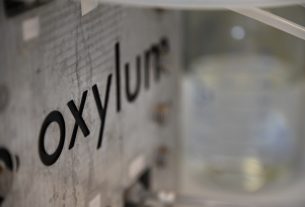United Kingdom – The government has given a consortium led by Sizewell C £3 million to create plans for Direct Air Capture that could use heat from the new nuclear power station being considered for Suffolk.
Engineers from the University of Nottingham, Strata Technology, Atkins, Doosan Babcock, and Sizewell C will be able to build a demonstrator DAC unit with the help of the funding, which can remove 100 tonnes of CO2 from the atmosphere annually. By removing carbon dioxide from the air, direct air capture prevents it from causing climate change by storing it. Some Carbon Dioxide (CO2) may also be “recycled” for use in creating synthetic fuels, among other things.
The majority of current DAC systems use electricity, natural gas, or both, but the consortium is developing a design where CO2 capture and extraction is more effectively accomplished using heat. The least expensive method of producing low carbon heat is nuclear, and this innovative method has the potential to make deploying DAC significantly less expensive in the future.
Carbon capture development
If the consortium’s demonstrator project is successful, a scaled-up DAC unit powered by Sizewell C’s heat could eventually capture 1.5 million tonnes of CO2 annually. That is nearly enough to cancel out all of the emissions produced by rail transportation in the UK. Sizewell C would be connected to a full-scale DAC system that would be constructed far from the power plant and run without significantly affecting its electricity output.
The consortium submitted proposals for the demonstrator project as part of the Government’s Greenhouse Gas Removal (GGR) competition, which aims to hasten the development of carbon capture technologies. The announcement made today comes after a research, development, and design study that was successfully finished as part of the competition’s phase 1 in 2021. GGR technologies are essential for assisting the UK in achieving net zero emissions because they will help to offset the CO2 produced by sectors like agriculture and aviation that are challenging to decarbonize.
To create a British DAC technology, all engineering, design, construction, and testing tasks for the pilot will be completed in the UK.




